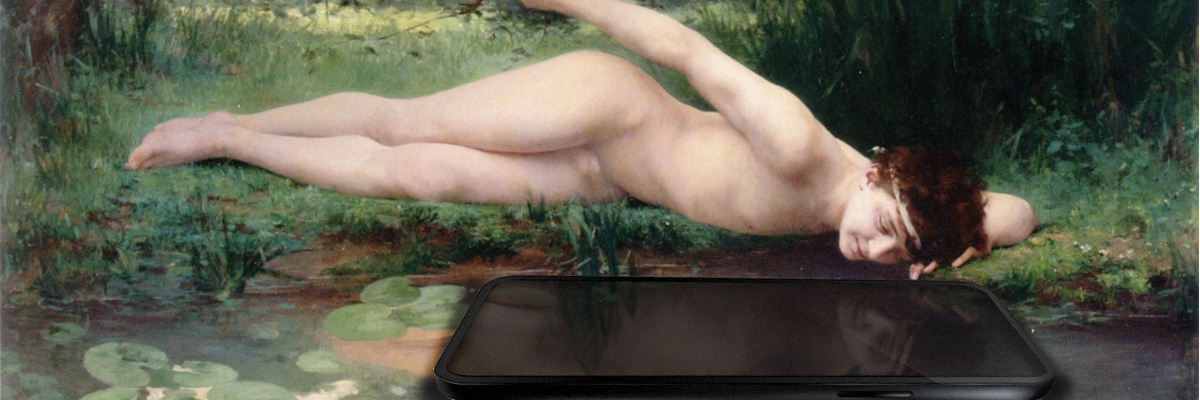The Giovanna Pedretti affair: what happened and why it is not an isolated case
Rainbow-hued moralism causes nausea, hilarity and, in extreme cases, kills. More precisely: bulimic attempts to flaunt one's politically correct ego on the more or less impressive digital and television pedestals produce a series of schizophrenias with either grotesque or dramatic overtones - the former in the ordinary regime and the latter on Sunday days.
In this sense, the tragic epilogue of Giovanna Pedretti's affair represents a borderline case that can be traced back to that set of news precedents united by three essential elements: the spasmodic pursuit of social validation, the anguished attempt to embody politically correct orthodoxy in the purest possible way, and the crass pursuit of one's own material gain. Among the precedents that have caused the most uproar are Chiara Ferragni's scam; the Soumahoro case; Mimmo Lucano's "Riace model"; Luca Casarini's illicit activities; and Laura Boldrini's mistreatment of her own maids and co-workers, among others.
Giovanna Pedretti's parable takes place over 72 hours and sees its denouement in the discovery of the woman's body in the Lambro River in the early afternoon of Sunday, January 14. It all began with the publication by the restaurateur of an image portraying, on the one hand, the review of a customer stymied at having eaten next to a homosexual couple and a disabled person, and on the other, her own retort to the insipid flavor of trite tirade of the usual "inclusive" and "tolerant" platitudes. The affair immediately takes on a very wide media echo among the attention of the social networking public, newspapers and television stations, and even the praise of the Minister for Disabilities, Alessandra Locatelli. The restaurateur, however, turns from "heroine" to "infamous" when Selvaggia Lucarelli and influencer chef Lorenzo Biagirelli advance doubts around the authenticity of the facts and interpret the whole thing as a marketing operation in favor of her own restaurant. Giovanna Pedretti is, thus, inundated with insults and within a few hours, at the height of endurance of all the surrounding hatred, she makes the extreme gesture. On the other hand, in the crosshairs of criticism also ends Lucarelli herself for having first generated the escalation of tones and a real witch hunt.
The focus is the narcissistic perversion of the current social and mass media system
With regard to this affair, it is not so much necessary to identify the perpetrators and victims as to highlight the perverse underlying atmosphere with its ideological cloak and sensationalist and spectacular turbulence. Giovanna Pedretti is just yet another champion-after the Ferragni, the Soumahoro, and the others previously mentioned-of political correctness, the latest figure to pass into the spotlight who has proved particularly adept at promoting (perhaps) her own material interests and (certainly) her own ego using the ideology, whining, and distortions of the mass media narrative of the moment.
In order to try to advance a deeper interpretation of the facts, it is necessary to take a step back and identify the essential trait of the current era in what Michel Houellebecq has called "the extension of the domain of struggle." Individuals - mutually untied and "liberated" from all sorts of moral, communal, class, family and religious constraints - appear as atoms in perpetual combat, subjugated in every field of the social sphere by the "free competition" that was originally limited to the economic sphere. Within this framework, as Christopher Lasch already noted in the late 1970s, the founding sentiment is narcissism, and its ideological corollaries are permissiveness, an ethic of convenience, the cult of hedonism and self-fulfillment, and the repudiation of the past and nature in favor of the construction of an infinite present and a fictitious identity.
In the whirlwind of struggle, narcissistic individuals try to achieve social ascendancy by aspiring to the uncritical admiration of others for their own person and essentially abolishing any distinction between public and private. Here social networks show their far from neutral nature. Indeed, under the spotlight of smartphones - in the same way as television cameras on a larger scale - they review the more or less private acts of the life of the average narcissistic individual: Saturday nights and other playful moments, the purchase or display of a more or less seductive or bizarre garment, the tenderness of pets and one's affections. Anything that remains outside the aforementioned spotlight is condemned essentially to nonexistence, to oblivion, to the fringes of struggle. One should encourage, in this sense, studies in psychopathology to understand, demarcate and condemn all those wide behaviors disconnected from reality (the eagerness to portray on the screen and broadcast a landscape without enjoying it with one's own eyes; the time lost in the asphyxiating selection of one's "outfit" and the right photographic angle; the irrepressible tendency to place one's buttocks in the foreground...).
Within this framework, the narcissist - read "influencer" - can empower his or her "self" and further spread his or her content by embodying the Quranic laws of political correctness or, more generally, the more comfortable trends in vogue at a certain time. Such perverse mechanisms naturally undermine the foundations of the morality of the "old aunts" - primarily the recommendation that "charity is done but not said," but also, more generally, the tendency toward sobriety, savings and work as facts of decency, the attachment to the healthy family and bourgeois values of the old days.
Between nausea, drama and hilarity
Like the structure of an army, religious and social organization of the past and present, today's narcissistic society in perpetual conflict also takes a hierarchical form. Thus there subsists an apex, a narrow elite entrenched in its own Olympus, a base of rabble and village idiots, and a series of intermediate cadres more or less plebeian and distant from the two ends.
Beyond the sad denouement, the theatrics of Selvaggia Lucarelli and Giovanna Pedretti recur every day, both among the top and the lowest reaches of the social pyramid. Thus, the strenuous defense of the rights and whims of "minorities," the narcissistic construction of one's outwardly good and righteous "self," the hunt for the "bad guys," and the attempt to build an "inclusive" and "tolerant" world constitute such recurrent instances to the point of nausea. It is enough, in fact, to turn on the television at any hour or flip through the pages of almost any national newspaper to find oneself surrounded by such choreographed poses. And, in that sense, there is no escape even among the opinions, habits and audiovisual content promoted by those around us on a smaller scale. Virtually all of us, in fact, know someone who shows pride in having lived a year on Erasmus, abroad or on mission in Africa and having thus "opened up" their "horizons," or in having donated blood or served in the Red Cross (complete with dancing accompaniment or badges and uniforms on display) or of having contributed symbolically or concretely to the conformist cause of the moment (by vaccinating themselves in times of pandemic, waving rainbow colors in various ways or displaying French flags or the expression "Je suis Charlie" in the period of Islamic terrorism... ).
It is precisely to this state of affairs, with attached glories and burdens of each rung in the social hierarchy of today's perpetually struggling narcissistic society, that the suicide of the Lodigiano restaurateur is in some way most likely linked. Such a personality, on the other hand, was certainly more or less imbued with the goodness, the woke ideals, the exhibitionist fulfillment associated with social network activities on a par with a Lucarelli or any other TV personality. Unlike these, however, Pedretti's shoulders were still measured on the narrow and limited experiences of a life in the suburbs, unaccustomed to the pressures, the clamors of the big press and stages. For once, therefore, two profiles of different weights found themselves in the same ring, two personalities, however, equally eager for attention, to draw a furrow between their own good and inclusive "I" and a "they" steeped in nastiness, discrimination and the Middle Ages. Neither Lucarelli nor Pedretti were aware of the risks and consistency of their actions as they were both immersed in the fury of struggle and liberal non-rationality. The latter, in fact, proceeds unilaterally toward the pursuit and calculation of its own material interest and departs from authentic rationality, that is, critical reason aimed at seeking the meaning and content of individual and collective existence.
The paradox of the narcissistic self-both elitist and plebeian-lies precisely in its estrangement from authentic rationality and its belief that it is part of an oppressed minority and embodies subversive values. Amidst the nausea over progressive rhetoric, predictable dramatic endings and the asphyxiating mass media cloak, there is no better omen than the one launched by Michel Clouscard, among the first, as early as the 1970s, to intuit the perfect integration into the capitalist system of transgressive, marginal and protesting personalities:
"But it is the people who will have the strength and power to radically unmask this imposture. And it is it that will give the ultimate sanction. Through laughter, the enormous uproar of laughter that will bring down the human comedy that has become the literati. An irresistible hilarity will completely conquer the listener of this message of nothingness. The literary man will be preserved, embalmed in his speech, as the unspeakable testimony of bourgeois vanity." [M. Clouscard, The Capitalism of Seduction. Critique of libertarian social-democracy, edited by M. Concialdi, Ursae Coeli, Milan, 2019, p. 40].
Journalism contributor and expert in contemporary history. Focuses, in particular, on the political ideologies of twentieth-century Italy.








Scrivi un commento